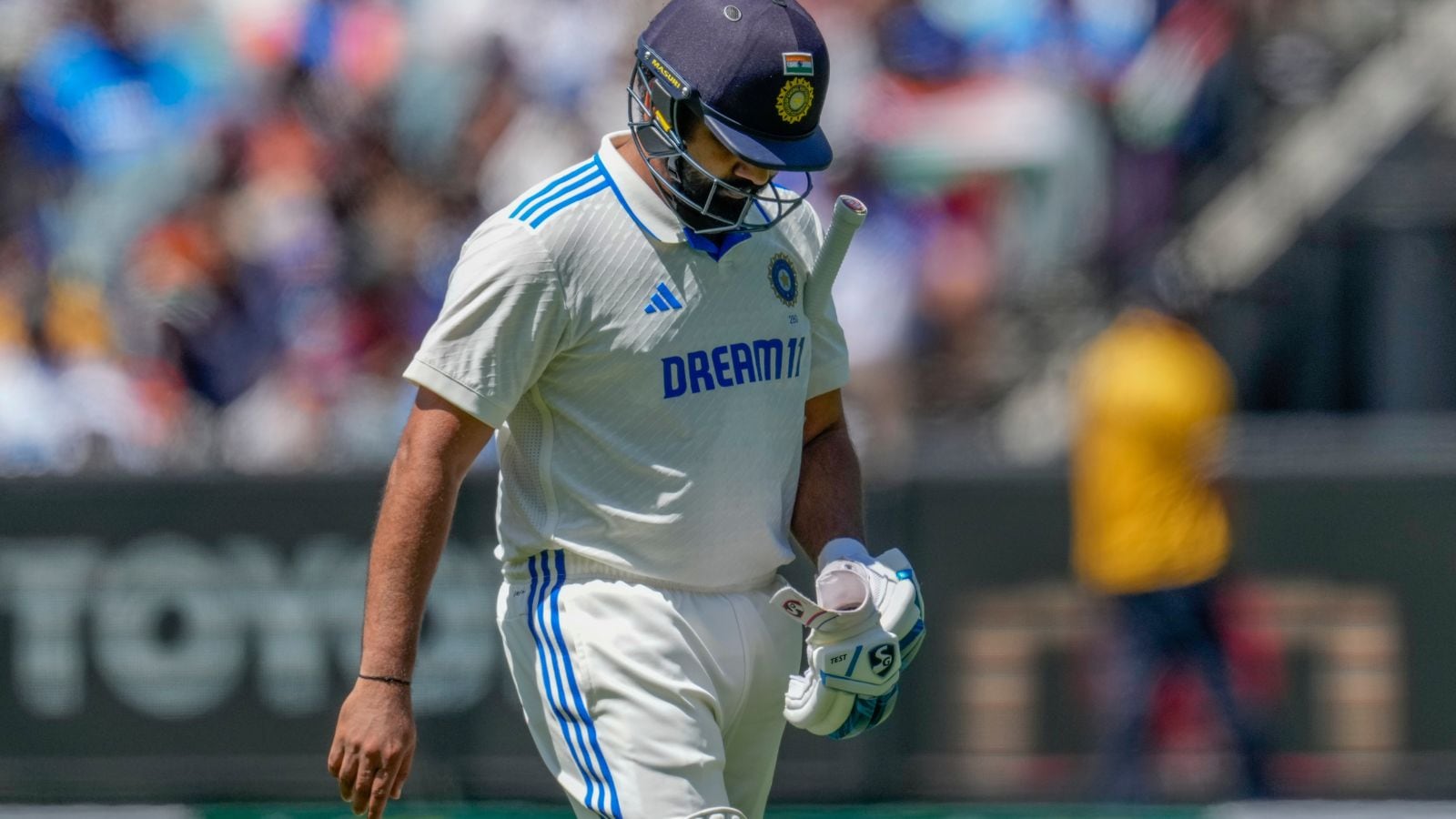 |
|
The cricketing world is abuzz with the news of Indian Test captain Rohit Sharma's decision to opt for rest in the final and decisive fifth Test against Australia in Sydney. This surprising announcement has sent ripples throughout the cricketing community, sparking debates and analyses regarding its impact on the upcoming match and India's overall strategy. The decision, made known to coach Gautam Gambhir and chairman of selectors Ajit Agarkar, signifies a significant shift in India's approach to the Border-Gavaskar Trophy, with the team now led by paceman Jasprit Bumrah in this crucial encounter. The implications extend beyond just this match; Sharma's potential absence from the next World Test Championship cycle, starting with a tour to England, adds another layer of complexity to the situation. The possibility that this match could mark Rohit Sharma's last appearance in Test cricket for a significant period hangs heavily in the air, especially considering India's unlikely qualification for the upcoming WTC final.
The selection of Shubman Gill to replace Rohit Sharma in the playing XI provides a strategic dimension to the decision. Gill, previously dropped from the Melbourne Test, will now bat at number three, with KL Rahul and Yashasvi Jaiswal opening the innings. This rearrangement reflects a conscious effort to recalibrate the batting order and optimize the team's performance in the face of the challenging Australian conditions and the pressure of the final Test match. Furthermore, the inclusion of Prasidh Krishna in place of the injured Akash Deep adds another element of change to the team composition. The decision to include Krishna underlines the importance of adapting to unforeseen circumstances and maintaining a strong and versatile team dynamic in the face of adversity. This careful consideration of player substitutions highlights the strategic depth and adaptability within the Indian cricket management's decision-making process.
Rohit Sharma's recent performance in Test matches has undoubtedly played a role in the decision to rest him. His average of a mere 6.2 in the last three Test matches in Australia and 10.93 in the last nine Tests overall paints a picture of struggle and inconsistency. This lackluster performance, coupled with criticism surrounding his captaincy following the whitewash against New Zealand and the losses to Australia in the current series, has added pressure on the captain. However, it's important to note that the decision to 'rest' him rather than drop him might indicate the team management's continued support while acknowledging the need for a strategic recalibration in the team's performance. Jasprit Bumrah's appointment as captain for the fifth Test represents a vote of confidence in his leadership abilities, particularly considering his previous success as captain during the first Test of this series. Bumrah's captaincy in this high-stakes match offers a crucial opportunity to demonstrate his capabilities as a leader under pressure and further establish his credentials as a future leader of the Indian cricket team.
The atmosphere surrounding the team during training sessions further emphasizes the significance of the situation. Coach Gautam Gambhir's extended and intense conversations with Bumrah hint at strategizing and preparing for the crucial match ahead. Rohit Sharma's brief appearance at the nets, his batting with side-arm bowlers, and his absence from slip practice sessions suggest a deliberate approach to his rest and preparation. While Gambhir's earlier non-committal response regarding Rohit's place in the playing XI generated speculation, his eventual confirmation of the rest adds a layer of confirmation to the situation. The uncertainty preceding the announcement served to increase the anticipation and focus on the critical match ahead. The fifth Test match against Australia presents a critical challenge for India. They must secure a victory to level the series at 2-2 and retain the Border Gavaskar Trophy, placing enormous pressure on the team and necessitating a cohesive and focused approach.
The decision to rest Rohit Sharma has raised multiple perspectives within the cricketing world. Some applaud the decision as a strategically sound move to give the captain adequate rest and allow a different leadership perspective to influence the team's performance in this high-pressure situation. It highlights the management's awareness of the importance of player well-being and the need to balance short-term results with long-term player sustainability. Others, however, have questioned the timing and impact of the decision, particularly given the significance of the final Test match and India's pursuit of the Border-Gavaskar Trophy. The debate highlights the inherent complexities in strategic decision-making in high-stakes sporting competitions, involving factors such as player form, leadership styles, and team dynamics. Regardless of the opinions and discussions surrounding it, the decision to rest Rohit Sharma and appoint Jasprit Bumrah as captain underscores the changing dynamics within the Indian cricket team and signals a commitment to balancing short-term goals with long-term planning for future success. The implications of this decision will continue to be discussed and analyzed as the final Test match unfolds and its consequences become apparent.
Source: Rohit Sharma opts to ‘rest’ for Sydney Test, Jasprit Bumrah to lead India in BGT finale
